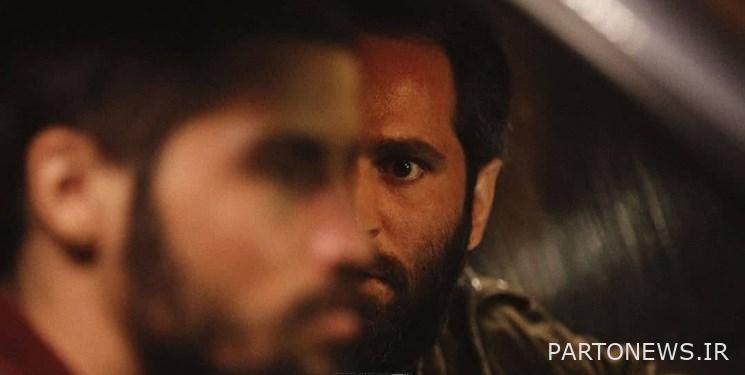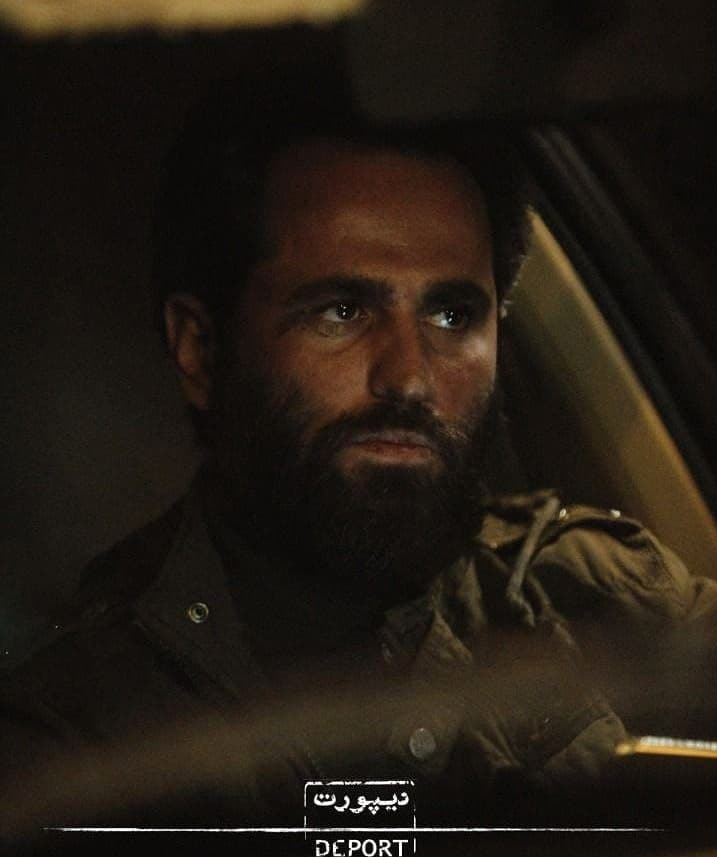“Deportation” of Martyr Defender of the Shrine Unveiled / Proposal to Delete Controversial Dialogue About Taliban + Video

According to a Fars News Agency cinema reporter, the feature film “Deport” about the character of the martyr who defended the shrine of Mostafa Sadrzadeh and the problems of Afghan immigrants in Iran was unveiled this evening (Tuesday, October 18) at the Soura Hall of the Arts Center. This film is the product of the Basij Center for Cultural and Artistic Creations, and after its screening, the family of Martyr Sadrzadeh was honored in the presence of Nader Talebzadeh, Javad Mogoei (documentary filmmaker) and Amir Sajjad Hosseini (director of “Deport”).
In another part of the ceremony, Hosseini, the director of the feature film “Deport”, said about his work: “Every time I see my film, I suffer because I say to myself, I wish I could make a different place.”
He added: “We do not claim to have made a different film.” But I always tried to make stories from a lesser-seen angle. For example, my first film was about a prostitute. My second film was about a student who is divorcing his wife. I was also going to make a film called “The Bastard Woman” which can not be put next to “Deport”.
Hosseini said: “When we were building the deportation, the issue of Afghanistan was not at all as it is now. This is a plague that, until something happens, the camera friends take over. On the other hand, I do not like the way the Mahmoudi brothers look at Afghans, because it is a violation of intent.
He continued: “While I did not like to make a film about the children who defend the shrine, which has tears and sighs, I preferred to make a film from the perspective of their wives.” I saw a lot of (raw films) about the martyr Mostafa Sadrzadeh and I came to the point where he had forged documents to go to the Fatimid brigade and this necessary spark came to my mind.

Mehdi Farizeh in the role of Mostafa Sadrzadeh
The director of “Deport” said about the selection of his actors: “I saw and liked Mehdi Farizeh (actor playing the role of Mustafa) in a theater with Navid Mohammadzadeh.” We deliberately cleaned up film and costume locations to correct the audience’s view of Afghans. Because, for example, my mother had an Afghan tenant who sometimes if she brought food, my mother would not eat it!
* “Deport” has a suitable rhythm and an international audience
Talebzadeh said at the ceremony: “Deport is a well-made film and has a professional structure and an important subject.” Afghanistan is an ongoing and apocalyptic affair, and Afghans are part of the body, and there have been problems in dealing with them over the past 40 years that are being corrected.
The film director said: “This film has a story, a cinematic range and aesthetics, and it has used music properly.” “Deport” has a good rhythm and can have an international audience. Because wherever there is talk of immigration, this film will be seen.
He continued: “One of the charms of the film was that we believe in the main character of the film.” I even thought the director himself was Afghan and one of the students we trained two decades ago in the Fayz Garden classes.
* I cried while watching the movie!
“I was watching the movie on my mobile phone today, but I saw that I had to watch it on a bigger screen,” Mogwai said.
He added: I had two big regrets, first, that the film is poor and low-cost, why should this film be 60 minutes? It could have been 90 minutes and we would have known more about the story of Abuzar’s father. I wish the Basij Film and Cinema Department would see this film as a cinema.
Hosseini replied: We made the film with 70 million, which is almost nothing. Because now I am making the series “Epidemic” and it costs almost every day. We also deleted some scenes due to lack of time, but tried not to make a telefilm. I tried to combine intellectual cinema with popular storytelling cinema.
In another part, Mogoi added: “I cried while watching the film, because I remembered my father who did not have a veteran’s certificate until he was able to become a veteran in 2001.” Of course, there was a bit of exaggeration in the film and the show of the psychiatric veteran.
“We have martyrs from seven or eight countries in the imposed war, but none of them was as big as the Afghans,” he said. This is while many people are unaware of its details.
“We saw the pain and suffering of the immigrant, but I did not see anything from the host country,” Mogwai said. Immigration and reception of immigrants is never desirable for the host country. The reasons for these objections or grievances are not seen in the film, and perhaps in the form of a few dialogues, the words of this side of the issue could also be heard. In fact, both sides gave each other the right and accepted each other. Recently, when I went to Afghanistan, the border guard said that 7,000 Afghans enter Iran every day and 4,000 return.
He continued: “I wish this film had been shown two years ago, which was a better time, not now that the Taliban is being discussed.” I suggest that we help prevent bipolarity by eliminating dialogue about the Taliban.
Hosseini confirmed: The Taliban may be different from the Taliban now when we made the film. We have a dialogue in the film that the Taliban cannot be changed, but it is better than ISIS.
An Afghan media activist present in the hall said: “Unauthorized entry into a land cannot be defended.” On the other hand, of the approximately 4 million Afghan refugees in Iran, half are undecided and undocumented. I also ask young filmmakers to consult with an Afghan-aware person when making a film about Afghanistan.
End of message /
Suggest this for the front page
.

